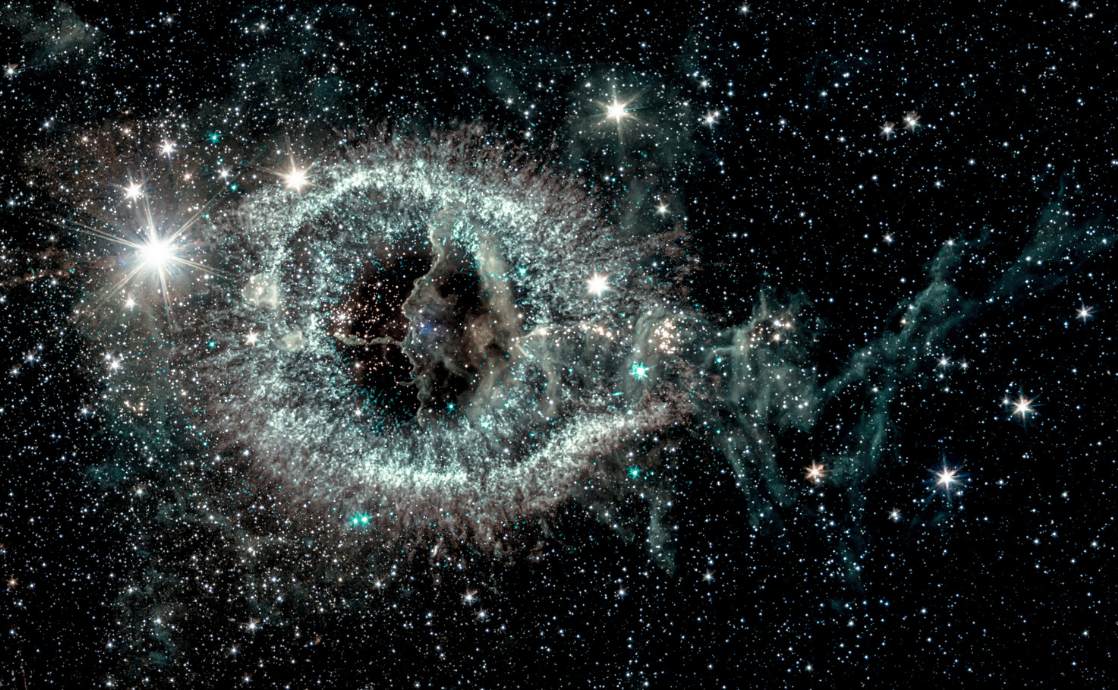The concept of human beings as the universe’s consciousness prompts an intriguing question: Are we mere observers of a cosmic phenomenon, or are we integral participants in its unfolding narrative? This inquiry begins to unravel the profound connection between the individual and the cosmos. It is imperative to explore the Bahá’í teachings that elucidate this relationship, allowing for a more nuanced understanding of our role in the grand tapestry of existence.
To commence this exploration, we must first delve into the Bahá’í perspective on the nature of creation. From this viewpoint, the cosmos is not a static entity, but rather a dynamic, evolving manifestation of divine intent. Every celestial body, ranging from the colossal galaxies to the subatomic particles, is imbued with purpose and significance. The Bahá’í teachings articulate that the universe is a reflection of the divine attributes of God, establishing a profound interconnectedness among all forms of existence. This relationship posits humanity as a critical node in the cosmic web, serving as the consciousness through which the universe perceives and understands itself.
Continuing this theme, the role of consciousness in the cosmos evokes an interesting challenge: How does one reconcile the vastness of the universe with the intimate nature of personal existence? Humans, with their capacity for introspection and self-awareness, possess unique cognitive faculties that enable them to ponder their place within the universe. This sentience leads to a larger existential question about the purpose of human life within the cosmic system. According to Bahá’í teachings, our existence is purposeful—not only for our own development but also for the advancement of the world at large. We are encouraged to cultivate virtues and engage in service, thus participating in the realization of a better world. This perspective invites individuals to consider the weight of their actions and their reverberation through the cosmos.
The teachings further accentuate the idea that as humans reach spiritual maturity, they become conduits for the flow of divine knowledge and wisdom. This concept implies that as we progress along our spiritual journeys, we attain a more profound understanding of the universe and our interconnected role within it. This understanding can challenge individuals to evaluate the manner in which they interact with the world around them. Are we fostering connections that reflect harmony and unity, or are we contributing to division and dissonance? The answers to these questions hinge upon our perceptions of consciousness and responsibility.
Moreover, this exploration leads us to consider the implications of our actions on a cosmic scale. Each thought, intention, and deed resonates beyond our immediate circumstances, affecting not only those in our immediate vicinity but also the broader universe. This notion of collective consciousness aligns with the Bahá’í emphasis on the oneness of humanity. If humanity is perceived as a singular entity, then the actions of one individual can influence the entirety of creation. This perspective challenges the often-held belief that actions are inconsequential or limited to the individual’s sphere. Instead, individuals are urged to recognize the weight of their contributions to the collective cosmic dialogue.
The intricacies of this relationship between humanity and the universe also invoke the significance of spiritual teachings in guiding human conduct. The Bahá’í writings present a wealth of insights regarding ethical behavior, virtues such as justice, compassion, and generosity, and their essential role in elevating the human condition. Engaging in the practice of such virtues invites individuals to transcend the limited self and aligns them more closely with the cosmic purpose. This spiritual orientation serves as a reminder that our existence holds significance, not merely within the confines of our lives but as an integral aspect of a larger narrative.
Furthermore, Bahá’í teachings align the concept of human beings as the universe’s consciousness with the advancement of science and reason. The emphasis on the harmony of science and religion provides a robust framework through which individuals can actively engage with both spiritual insights and empirical findings. In doing so, one may ponder whether the exploration of the cosmos through scientific inquiry is simply a quest for knowledge, or whether it represents a deeper search for understanding of our existence within the greater cosmic reality. This dual pursuit fosters an enriched worldview, wherein empirical knowledge complements spiritual understanding, leading to a holistic grasp of the universe.
Embracing this duality, one can posit that humans possess the unique responsibility to bridge the gap between the material and spiritual dimensions of life. This conviction invites a myriad of questions. How do we navigate the complexities of our world while striving for a deeper understanding of our higher purpose? What roles do love, unity, and collaboration play in our collective journey towards consciousness? To engage with these questions is to immerse oneself in the continuous dialogue of human existence within the cosmic expanse.
In conclusion, the Bahá’í perspective on human beings as the universe’s consciousness offers profound insights into the intrinsic relationship between individuals and the cosmos. This journey invites individuals to embrace the potential for spiritual growth, to recognize the vast implications of their actions, and to cultivate virtues that align with the universal order. By fostering a deeper understanding of our interconnectedness, we cultivate a more harmonious existence. Thus, we emerge not just as mere observers but as conscientious participants in the cosmic narrative, echoing the divine intent through our thoughts, actions, and intentions.
